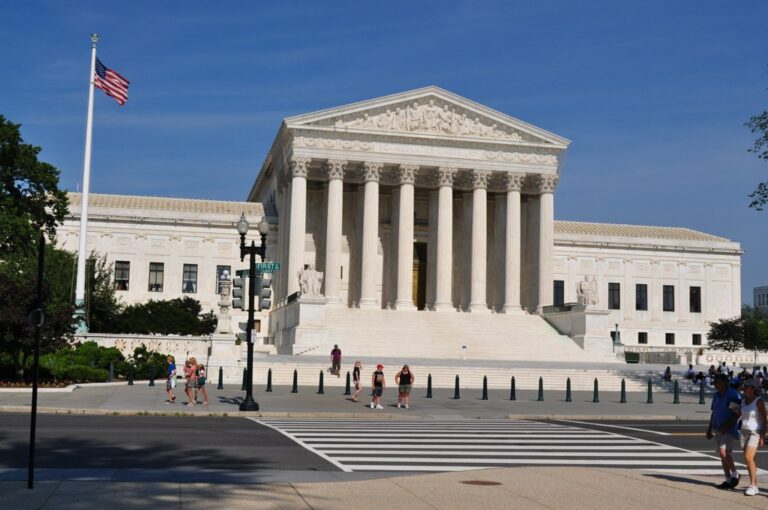Corporate accountability and regulation
Corporations are responsible and should be held accountable for the impact of their business activities on people, societies and the environment. A growing number of initiatives and standards try to stimulate corporate accountability, from corporate codes of conduct and certification schemes to the OECD Guidelines for Multinational Enterprises and the United Nations Guiding Principles on Business and Human Rights. SOMO evaluates the effectiveness of these initiatives by examining the degree to which they actually contribute to responsible corporate behaviour, corporate accountability, and access to remedy. Our conclusion – based on more than thirty years of research on corporate accountability – is that voluntary initiatives and guidelines fall short. Firm measures are needed to ensure that businesses respect human rights, labour rights, and the environment, and that victims of abuse obtain the remedy they deserve. For this reason SOMO advocates for binding enforceable regulations and laws, effective judicial and non-judicial grievance mechanisms, and a strengthened international legal framework to protect human rights in the context of business operations.
Overview of articles
-
Civil society organizations urge fundamental reform at UNCITRAL’s ISDS discussionsPosted in category:Published on:Statement
-
Effective enforcement is the ultimate litmus test for any human rights treatyPosted in category:Published on:Statement
-
Civil society’s proposal for the Conclusions and Recommendations of the Report of the 4th session of the UN Binding Treaty negotiationsPosted in category:Published on:Statement
-
EU civil society organisations call on the EU to contribute substantively to the negotiations on the Zero Draft Treaty on Business and Human RightsPosted in category:Published on:Statement
-
 Historic opportunity to prioritize human rights above business interests, next week at the United Nations in GenevaPosted in category:NewsPublished on:
Historic opportunity to prioritize human rights above business interests, next week at the United Nations in GenevaPosted in category:NewsPublished on: -
 Addressing human rights impacts of business in Eastern and Southern Africa: current state of affairs and the way forwardPosted in category:NewsPublished on:
Addressing human rights impacts of business in Eastern and Southern Africa: current state of affairs and the way forwardPosted in category:NewsPublished on: -
 Experts call on US Supreme Court to reverse decision protecting IFC’s absolute immunityPosted in category:NewsPublished on:
Experts call on US Supreme Court to reverse decision protecting IFC’s absolute immunityPosted in category:NewsPublished on: -
NGO input on Commissions proposal on Unfair Trading PracticesPosted in category:Published on:Statement
-
The new OECD Due Diligence Guidance on Responsible Business Conduct: what to make of it?Published on:Posted in category:Opinion
-
 OECD clarifies expectations of business to prevent and remediate harmful impacts on people and planetPosted in category:NewsPublished on:
OECD clarifies expectations of business to prevent and remediate harmful impacts on people and planetPosted in category:NewsPublished on: -
Letter to Europe on UN Treaty on Business and Human RightsPosted in category:Published on:Statement
-
Letter to UN members on the Treaty on Business and Human RightsPosted in category:Published on:Statement
-
65 civil society groups call on the Tanzanian Government to address rapidly deteriorating civic spacePosted in category:Published on:Statement
-
 SOMO and partners join forces for better grievance mechanismsPosted in category:News
SOMO and partners join forces for better grievance mechanismsPosted in category:News Kristen GenovesePublished on:
Kristen GenovesePublished on: -
ISDS reform: The need for a substantive overhaul to investment protectionPosted in category:Opinion
 Bart-Jaap VerbeekPublished on:
Bart-Jaap VerbeekPublished on: Bart-Jaap Verbeek
Bart-Jaap Verbeek -
Welcome letter to Luis Gallegos Chiriboga: the new Chair-Rapporteur of the UN’s IGWGPosted in category:Published on:Statement
-
Joint statement: call for collective redress for everyone in the European Union – not only consumersPosted in category:Published on:Statement
-
 Joint statement: call for collective redress for everyone in the European Union – not only consumersPosted in category:News
Joint statement: call for collective redress for everyone in the European Union – not only consumersPosted in category:News Rachid BelkhirPublished on:
Rachid BelkhirPublished on:

